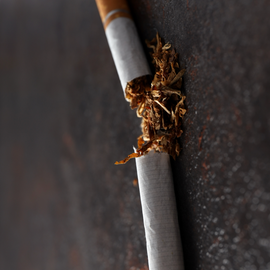Remember Quemoy and Matsu?
- Max Bonnell
- Feb 24, 2022
- 4 min read

Don’t worry, almost no-one else does. They’re two islands off the coast of Taiwan, claimed by Taiwan, that were the subject of a fierce territorial dispute between Taiwan and China in the late 1950s. Quite a remarkable amount of time was devoted to Quemoy and Matsu during the celebrated televised presidential debates between Kennedy and Nixon in 1960, with each candidate explaining in detail why his response to threatened Chinese aggression was the better approach.
Perhaps in sixty years’ time, the Ukrainian “autonomous states” of Donetsk and Luhansk will be as obscure as Quemoy and Matsu are now. But at the moment, they’re full of Russian tanks, and the NATO states and their allies are trying to work out what to do about it.
In Australia’s Parliament, the consensus is that Russia has breached international law and that “tough sanctions” are required. And that raises two interesting questions, the first one being whether a breach of international law has in fact occurred.
The question is a pretty academic one, since the kinds of laws that Russia is said to have broken don’t come with any enforceable consequences. But the answer is probably yes: Article 2(4) of the UN Charter reads: “All Members shall refrain in their international relations from the threat or use of force against the territorial integrity or political independence of any State, or in any other manner inconsistent with the Purposes of the United Nations.” Russia’s incursion into Donetsk and Luhansk seems to amount to a use of force against the territorial integrity of Ukraine. For completists, Russia is probably also in breach of the Belovezh Accords, a 1991 treaty by which Russia, Ukraine and other states agreed to the dissolution of the USSR.
What about “tough sanctions”? Usually, that would mean imposing restrictions on trade, but the difficulty there is that Australia doesn’t actually trade all that much with Russia. In 2020, the last year for which figures exist, the value of Australia’s imports from Russia was about US$40 million, which just about buys you a three-bedroom apartment in Bondi these days. There was rather more traffic in the opposite direction (Australia exports things like wheat, livestock and alumina to Russia), but placing an embargo on that trade is unlikely to be politically palatable, since it would harm the Australian exporters more than the Russian importers.
In any case, there are already sanctions in place, set out in the Autonomous Sanctions Act 2011 (Cth). These were legislated after a previous Russian intervention in Ukraine, and provide that Australians can’t conduct business with Russia in relation to arms or oil (and related products). The first of these is essentially symbolic: Russia needs Australian weapons in the same way that Greenland needs Australian snow. The second has had some impact: Australia used to import a moderate amount of crude oil from Russia, and now imports very little.
That hasn’t left the Australian government with much else to do, short of a ban on Stolichnaya vodka and Beluga caviar. What the government has come up with, so far, are some sanctions aimed at a handful of oligarchs, which are likely to be mostly gestural. Gestural sanctions certainly can be meaningful (for example, sporting and cultural boycotts sometimes have serious impacts), but when you hear Australian politicians talking about “tough sanctions” in this context, it means about as much as Kennedy and Nixon arguing over Quemoy and Matsu.
There are nations that are able to impose extremely meaningful sanctions on Russia, and they’re mostly in Europe. If the EU stopped importing Russian natural gas, the effect on Russia’s economy would be dramatic and immediate. Unfortunately, the impact on the EU would be just as dramatic. Around 40% of the EU’s natural gas imports come from Russia, and in some countries that gas is used to fuel as much as 50% of the nation’s energy requirements. If Russian gas were cut off tomorrow, Poland would shut down. So would several smaller countries, like Moldova and Bosnia and Herzegovina. Even Germany would struggle badly, and so would Italy. The EU has threatened to suspend Nord Stream 2, a system of gas pipelines under construction that will link Russia and Germany. But there’s no suggestion, yet, that existing supplies will be disrupted. The EU just doesn’t have enough alternatives in place.
Potentially this is good news for Australia, which could try to increase its supplies of liquefied natural gas to the EU. How realistic that is, is difficult to say. LNG is shipped, rather than piped, so delivery is slower. It then needs to be deliquified at its destination, and at present there are capacity constraints on that process. So there’s some upside, but achieving the benefits won’t be straightforward.
A better bet, in the long term, would be for Australian renewables enterprises to develop technologies that can be exported. Most EU states understand that the best way to achieve energy security (and energy independence from Russia) is to increase their use of renewable energy sources. It’s for this reason (rather than any environmental concerns) that countries like Spain have invested so heavily in renewables. One way or another, Europe will one day need to free itself from its reliance on Russian gas – and there’s scope for innovative Australian businesses to capitalise on that.






























Comments